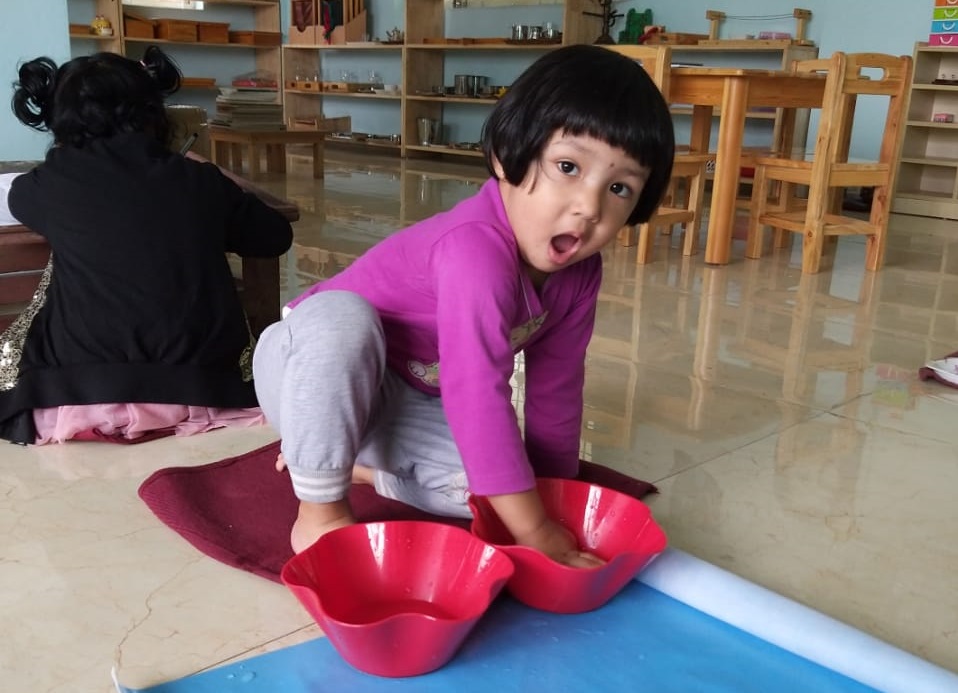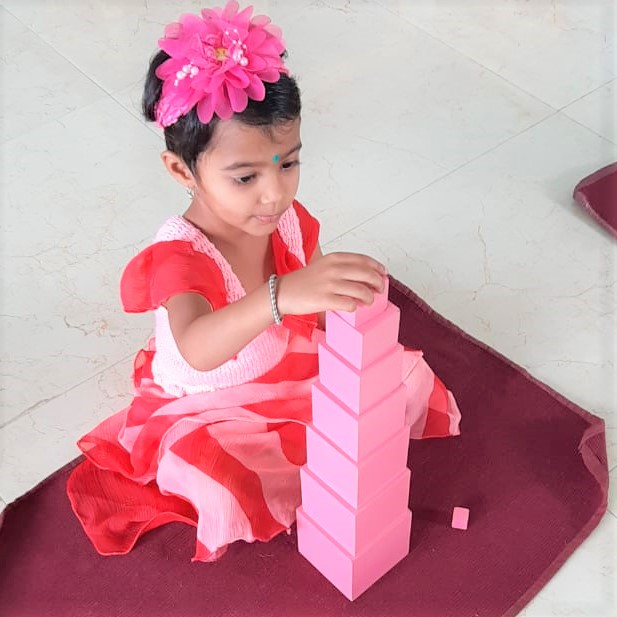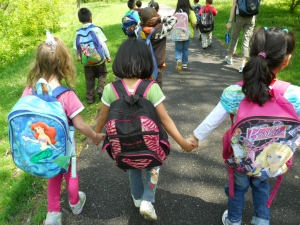ABOUT
Montessori Education is a method based on self-directed activity, hands-on learning and collaborative play. In our classrooms children make creative choices in their learning, while the classroom and the teacher offer age-appropriate activities to guide the process. Children work in groups and individually to discover and explore knowledge of the world and to develop their maximum potential.
Montessori classrooms are beautifully crafted environments designed to meet the needs of children in a specific age group. Our classroom led to a deeper understanding of language, arithmetic, science, music, social interactions and much more.
Every material in our classroom supports an aspect of child development, creating a match between the child’s natural interests and the available activities. Children can learn through their own experience and at their own pace. They can respond at any moment to the natural curiosities that exist in all humans and build a solid foundation for lifelong learning.
Our philosophy
We follow Dr. Maria Montessori Method. The Montessori Education Method has been used in educating children over 80 years. It emphasises on freedom, independence, within limits and respect for a child’s natural physiological advancements is society.
There is nothing quite like the authentic Montessori Education Method for early childhood education. This unique approach enables children to discover their true potential and develop an organized, engaged, and focused mind. The Montessori experience prepares them to be curious, lifelong learners, as well as good citizens, future innovators, and able leaders.
TEACHING METHODS
Traditional Classroom Vs. Montessori Environment
| Traditional Classroom | Montessori Environment |
| Textbooks, pencil and paper, worksheets and dittos | Prepared kinesthic materials with incorporated control of error, specially developed reference materials |
| Working and learning without emphasis on social development | Working and learning matched to the social development of the child |
| Narrow, unit-driven curriculum | Unified, internationally developed curriculum |
| Individual subjects | Integrated subjects and learning based on developmental psychology |
| Block time, period lessons | Uninterrupted work cycles |
| Single-graded classrooms | Multi-age classrooms |
| Students passive, quiet, in desks | Students active, talking, with periods of spontaneous quiet, freedom to move |
| Students fit mold of school | School meets needs of students |
| Students leave for special help | Special help comes to students |
| Product-focused report cards | Process-focused assessment, skills checklists, mastery benchmarks |
Montessori Programs

Toddler (18 months – 3 years)
Toddlers have the large practical life and sensorial areas that provide an opportunity to explore and experiment. Our teachers help the young child adopt to the community environment by providing a warm and secure place for them to learn.

Pre-school (3 to 6 years)
Nurturing a child’s independence, self-esteem and self-discipline, while introducing him to the basics of academics is best between the ages 3 to 6 years. The Montessori environment encourages increased independence and active participation in the learning process.

Field Trips & Extended Activities:
Field trip is a part of our curriculum. The purpose of the trip is usually observation for education to provide students with experiences outside their everyday activities. Vriddhi is pleased to offer extended care, during which children participate in arts, outdoor play, singing and dancing.
